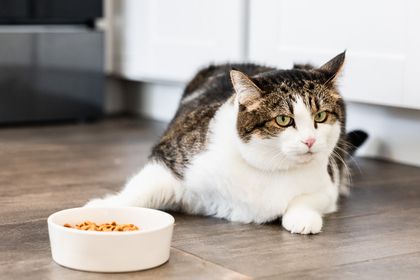It’s a mystery that has perplexed cat owners for centuries: why do cats bury their food? Is it a sign of affection? A way to remember where they stashed their snacks? Or something else entirely?
The truth is that cats have unique reasons for burying their food. To get to the bottom of this curious behavior, we’ve put together eight reasons why your cat is burying food.
If you’re looking for answers to why your feline friend is stashing their kibble, you’ve come to the right place! Let’s get digging.
Your Cat May Be Stocking Up for the Future
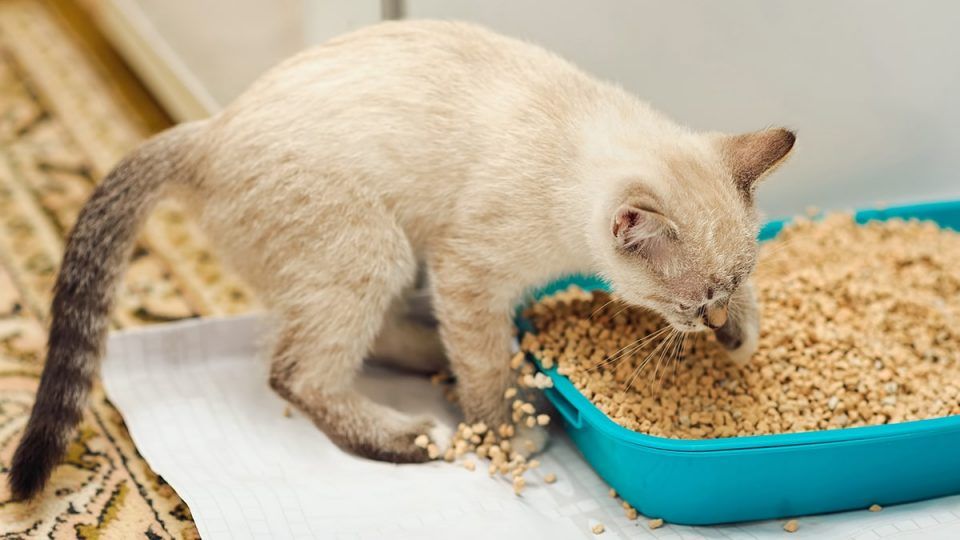
Cats may hide some of their food so they can eat it later. This is called “food caching,” and it is an instinct they got from their ancestors. This could be because your cat is a picky eater and wants to save their favorite treats for later, or it could simply be to protect it from other pets.
Cats may also be stocking up for the future if they don’t trust their food supply to remain consistent. Cats are known to do this when they are living in the wild. These felines want to make sure they have enough food to survive if they cannot find food in the future. In domesticated cats, this behavior could be a sign that they don’t trust that their food bowl will be consistently full. They might worry that they may not have food in the future.
If your cat does this, you may consider giving them an automatic feeder. This will ensure that their food bowl is consistently full and that they don’t need to bury their food.
Your Cat May Be Hiding the Evidence
Domesticated cats may bury the remains of their meal to cover up any trace of their presence and keep themselves safe from potential enemies. This behavior is prevalent among pregnant cats and new mothers nursing kittens. They want to stay close to their young and prevent any trace of their scent from drawing in predators.
Feral cats still employ this technique in the wild to outsmart their predators. Even cats that think they are weak may hide their food so that dominant or aggressive cats can’t get to it. By planting their food, cats can keep themselves and their young safe from harm, as no trace of their presence is left behind.
This is a testament to the strong survival instincts of cats, even domesticated ones.
Your Cat May Be Keeping Things Tidy
Cats are notoriously clean creatures, and it’s no surprise that they extend this need for order and neatness into their “dens” and, by extension, your home.
They’re meticulous about burying their food and waste to prevent illnesses from contaminating their living area. It can be traced back to survival instinct, as other animals might be attracted by the smells of food and waste, making them vulnerable to disease. To ensure their safety, cats will bury their food and kick sand or litter over their waste to hide it away and keep their living area clean.
However, burying their food could be a sign that they don’t like what they’re being given, so it’s best to reevaluate their diet. Understanding your cat’s behavior can help you better care for them and ensure they’re happy and healthy. So if you catch your cat burying its food, take a moment to consider why they’re doing it and take the necessary steps to keep them safe and content.
Your Cat May Be Avoiding Attracting Other Predators
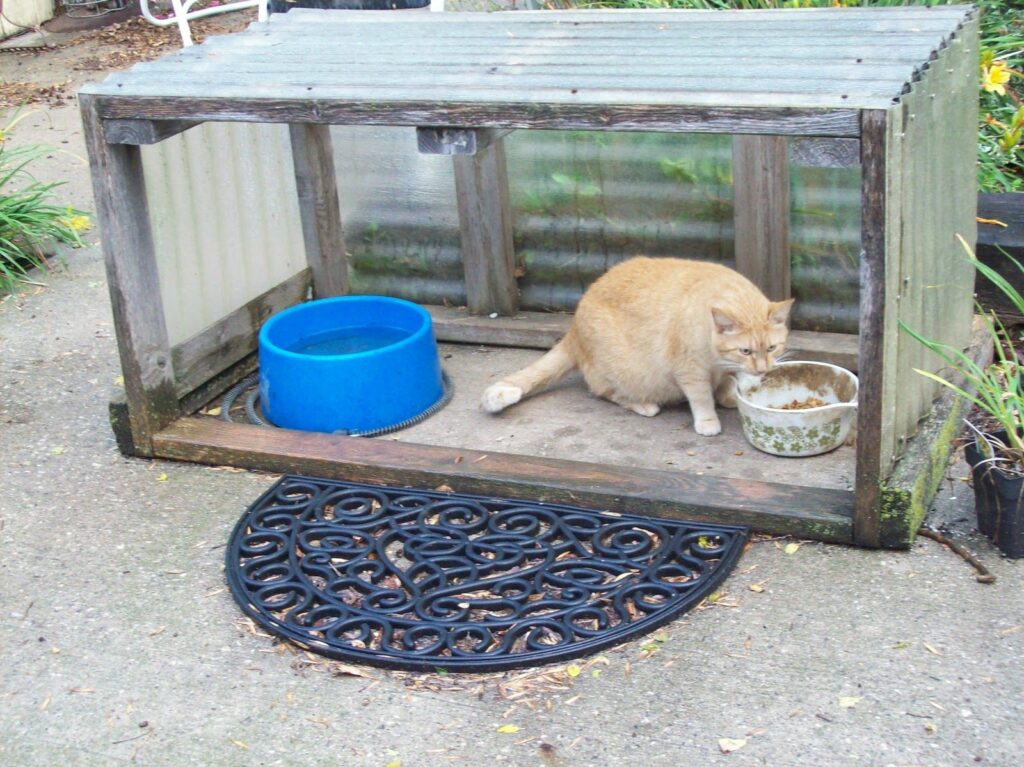
Cats have the instinct to protect themselves from any possible danger, and burying their food is one way they do this. Hiding their food helps to prevent the scent of food from lingering in the air and attracting other predators.
Even in the safety of their own home, cats may feel the need to protect their food from other animals, such as other cats, dogs, or even birds. In the wild, cats will hunt in the early morning hours, when they are less likely to be detected by other predators. They will then bury any leftover food to ensure it stays safe for later. Cats will also bury their food when they feel threatened.
Even if it’s in the safety of their own home, if a cat is scared or feels anything out of the ordinary, they will bury its food as an extra precaution. Cat owners should always be aware of their pet’s behavior. If you notice them stashing their food, it could indicate that your cat feels uncomfortable or scared in their environment.
Your Cat May Be Preserving Their Meal
Cats instinctively understand the importance of preserving their food. Much like our ancestors would dig out caches in the permafrost to store food for later, cats bury their meals to keep them cooler and prevent them from going rancid. The ground acts as a practical refrigerator, shielding the food from the direct sunlight and ambient heat that would otherwise cause it to go sour.
By burying their food, cats can enjoy a tasty meal at their leisure and save some for later. Cats that live outside or are feral often do this because they have to work hard to find food.
They hide their food to ensure their meal holds up until it’s time to eat. If you notice your cat burying their food, it’s likely because they’re trying to preserve it to enjoy it later. By understanding their instincts, you can help them get the most out of their meals.
Your Cat May Be Protecting Kittens
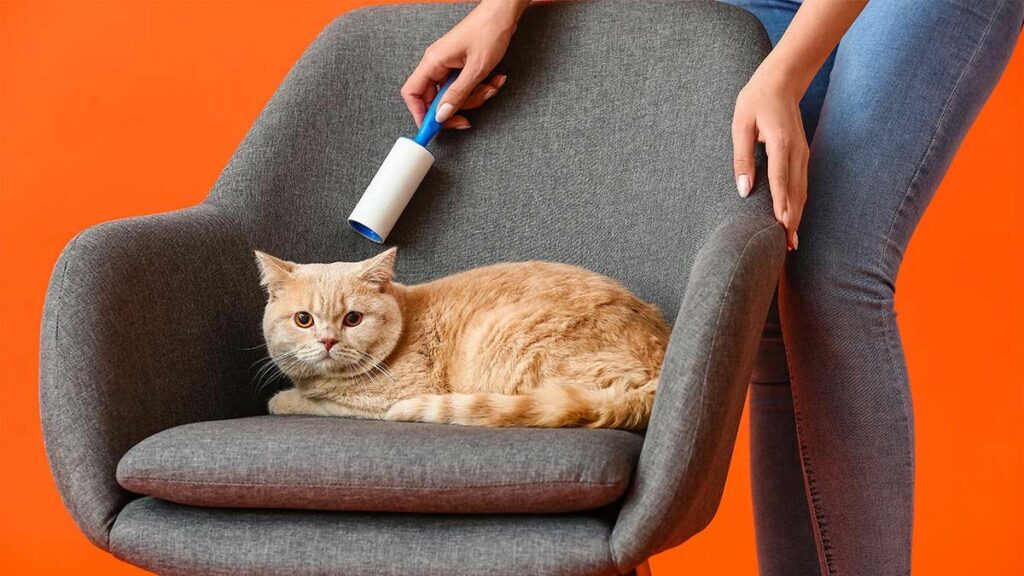
Female cats with kittens often bury their food to protect their young from predators. Cats instinctively hide the evidence of their presence and the presence of their young to avoid detection. A mother cat will try to hide the smell of food, so hungry animals don’t find her kittens.
The mother cat will use her scent to mark her territory and keep other animals away, and burying her food is another way to deter potential danger. Cats will also bury their food to prevent other kittens or cats from stealing it. This behavior is widespread in cats that live outdoors in a feral environment. Without the security of a home, cats must take extra precautions to ensure their safety and that of their young.
It is an instinct that all cats possess and is essential for survival. In summary, if you have a female cat with kittens at home, she may be burying her food to protect her young from predators. She can ensure that no other animals will find the kittens by hiding the smell of food. It is an instinct that all cats possess and is essential for survival.
Your Cat May Be Burying Food to Avoid Scaring Potential Prey
Cats are inherently solitary hunters, so they have to be careful not to alert their prey to the fact that they are in the area. Burying food is an excellent way to prevent potential prey animals from becoming alarmed by the presence of something hunting. For example, your cat may bury the leftover parts of the mouse it captured so that any other mice in the area don’t become aware of the presence of a predator.
This helps cats to stay stealthy and successful hunters. Cats may also hide leftover food from other meals, so they don’t scare away possible prey. A half-eaten carcass left out in the open could alert prey animals that something is hunting in the area, causing them to flee. Burying the food helps them hunt more quickly in the future.
It’s not uncommon for cats to bury food, and they likely do it to avoid scaring potential prey. By burying food, cats can remain stealthy hunters and catch more game in the future.
Your Cat May Be Overfed
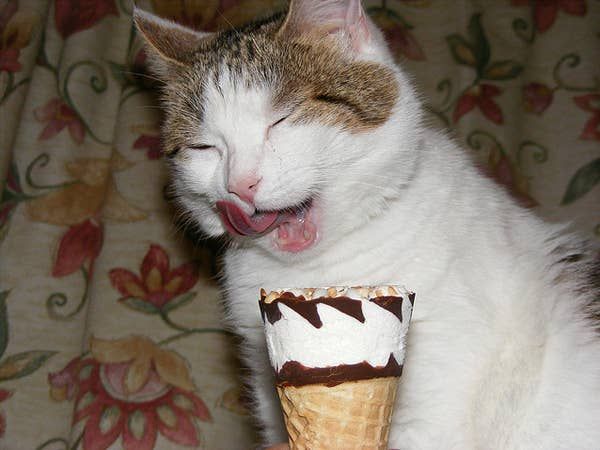
Controlling the Amount of Food to Avoid Undesired Behavior Cats may bury their food because they are overfed. While it’s natural for cats to want to eat as much as possible, if you give them too much food, they instinctively want to bury it.
This is similar to a cat’s instinct to bury its feces – they see the excess food as something it will not return to. As a cat parent, you must know how much food to give your cat. Overfeeding can lead to obesity, which can cause serious health issues. Therefore, controlling how much food you give your cat is essential for its well-being. It’s also important to note that cats are creatures of habit and may become accustomed to eating the same amount of food daily.
If you notice your cat burying her food and you think it’s a sign that she is receiving too much, try reducing the amount of food you give her. This will help your cat maintain a healthy weight and prevent undesired behavior.
Final Thoughts
In conclusion, cats bury their food for various reasons, such as to save it for later, to keep it hidden from predators, or to keep it damp.
To prevent this behavior, cat owners should take away the food bowl once their cat is done eating. It would be best if you also cleaned any wet food bowls immediately. Cats should be granted access to clean water, served food on surfaces that can’t be damaged, and given limited portions for one meal. You can buy a puzzle feeder to encourage your cat to “hunt” for dinner.
Importantly, don’t punish your cat for this natural behavior. You can help keep your cat healthy and happy.
Further Reading
